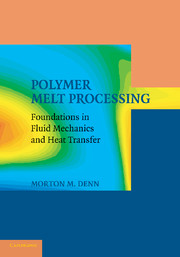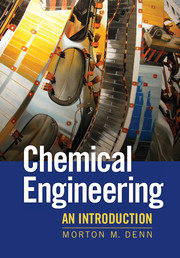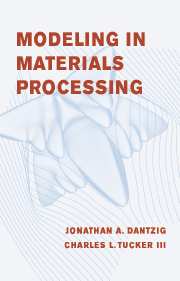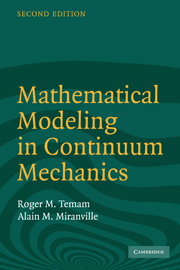Polymer Melt Processing
Foundations in Fluid Mechanics and Heat Transfer
$92.99 (P)
Part of Cambridge Series in Chemical Engineering
- Author: Morton M. Denn, City College, City University of New York
- Date Published: July 2014
- availability: Available
- format: Paperback
- isbn: 9781107417496
$
92.99
(P)
Paperback
Other available formats:
Hardback, eBook
Looking for an examination copy?
This title is not currently available for examination. However, if you are interested in the title for your course we can consider offering an examination copy. To register your interest please contact [email protected] providing details of the course you are teaching.
-
Most of the shaping in the manufacture of polymeric objects is carried out in the melt state, as it is a substantial part of the physical property development. Melt processing involves an interplay between fluid mechanics and heat transfer in rheologically complex liquids, and taken as a whole it is a nice example of the importance of coupled transport processes. This book is on the underlying foundations of polymer melt processing, which can be derived from relatively straightforward ideas in fluid mechanics and heat transfer; the level is that of an advanced undergraduate or beginning graduate course, and the material can serve as the text for a course in polymer processing or for a second course in transport processes.
Read more- A self-contained introduction to the underlying foundations using straightforward ideas in fluid mechanics and heat transfer
- Integration of fluid mechanics and heat transfer material taught in basic courses with practical applications
- Analytical (asymptotic) methods followed by numerical methods to show strengths and limitations of both approaches
Reviews & endorsements
"There are many aspects of this book to commend. The first is that it does not minimize the difficulties of the subject, yet manages to chart a course that builds on what a chemical engineering senior or graduate student can reasonably expect to find familiar up to the point where the difficulties of the subject can be properly grasped… The last three chapters are the densest; for me they were the most instructive and thought-provoking. They convinced me that progress is being made in modeling and tackling the unacceptable unsteadiness and non-uniformity observed in many current processes… I can justly end by urging every research worker in polymer processing to have a copy to hand on their shelves."
J.R.A. Pearson, Journal of Non-Newtonian Fluid MechanicsSee more reviews'… a pedagogical masterpiece … It is highly recommended to all graduate students and researchers in polymer processing. It would also be useful to be read by process engineers working in industry, who are frequently confused and bewildered by the avalanche of equations found in the literature, which is mostly written by academics.' International Polymer Processing
'I highly recommend this book. It can be used as a textbook for a course in polymer processing for advanced undergraduate or beginning graduate students as well as a reference book for engineers and scientists who are interested in polymer processing. All readers will find it easy to read, interesting, authoritative, thoughtful and instructive.' AIChE Journal
Customer reviews
Not yet reviewed
Be the first to review
Review was not posted due to profanity
×Product details
- Date Published: July 2014
- format: Paperback
- isbn: 9781107417496
- length: 264 pages
- dimensions: 254 x 178 x 14 mm
- weight: 0.46kg
- availability: Available
Table of Contents
1. Polymer processing
2. Fundamentals
3. Extrusion
4. Temperature and pressure effects in flow
5. The thin gap approximation
6. Quasi-steady analysis of mold filling
7. Fiber spinning
8. Numerical simulation
9. Polymer melt rheology
10. Viscoelasticity in processing flows
11. Stability and sensitivity
12. Wall slip and extrusion
13. Structured fluids
14. Mixing and dispersion.Instructors have used or reviewed this title for the following courses
- Polymer Processing
- Polymer Science and Engineering
Sorry, this resource is locked
Please register or sign in to request access. If you are having problems accessing these resources please email [email protected]
Register Sign in» Proceed
You are now leaving the Cambridge University Press website. Your eBook purchase and download will be completed by our partner www.ebooks.com. Please see the permission section of the www.ebooks.com catalogue page for details of the print & copy limits on our eBooks.
Continue ×Are you sure you want to delete your account?
This cannot be undone.
Thank you for your feedback which will help us improve our service.
If you requested a response, we will make sure to get back to you shortly.
×





